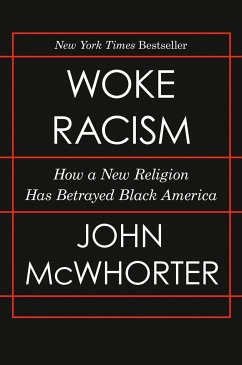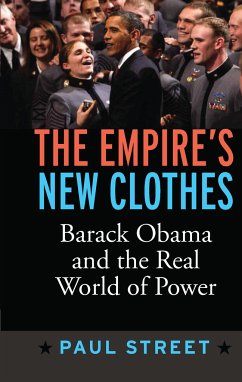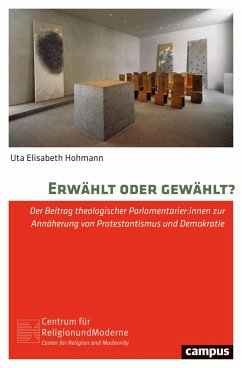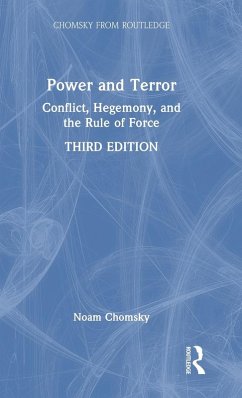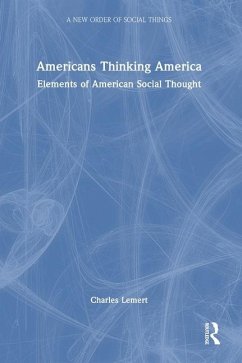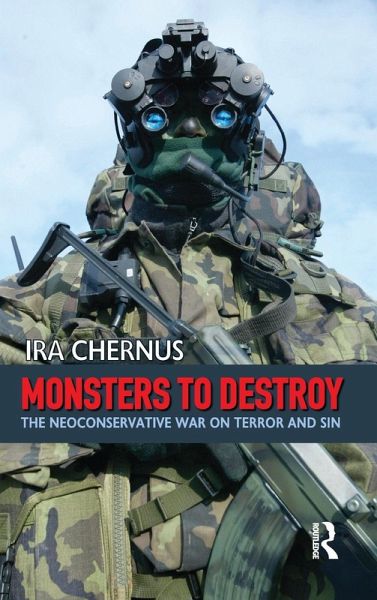
Monsters to Destroy
The Neoconservative War on Terror and Sin
Versandkostenfrei!
Versandfertig in 1-2 Wochen
264,99 €
inkl. MwSt.
Weitere Ausgaben:

PAYBACK Punkte
132 °P sammeln!
In his new book Monsters to Destroy: The Neoconservative War on Terror and Sin, Ira Chernus tackles the question of why U.S. foreign policy, aimed at building national security, has the paradoxical effect of making the country less safe and secure. His answer: The "war on terror" is based not on realistic appraisals of the causes of conflict, but rather on "stories" that neoconservative policymakers tell about human nature and a would divided between absolute good and absolute evil. The root of the stories is these policymakers' terror of the social and cultural changes that swept through U.S....
In his new book Monsters to Destroy: The Neoconservative War on Terror and Sin, Ira Chernus tackles the question of why U.S. foreign policy, aimed at building national security, has the paradoxical effect of making the country less safe and secure. His answer: The "war on terror" is based not on realistic appraisals of the causes of conflict, but rather on "stories" that neoconservative policymakers tell about human nature and a would divided between absolute good and absolute evil. The root of the stories is these policymakers' terror of the social and cultural changes that swept through U.S. society in the 1960s. George W. Bush and the neoconservatives cast the agents of change not simply as political opponents, but as enemies or sinners acting with evil intent to destroy U.S. value and morals--that is, as "monsters" rather than human being. The war on terror transfers that plot from a domestic to a foreign stage, making it more appealing even to those who reject the neoconservative agenda at home. Because it does not deal with the real causes of global conflict, it harms rather than helps the goal of greater national security.





